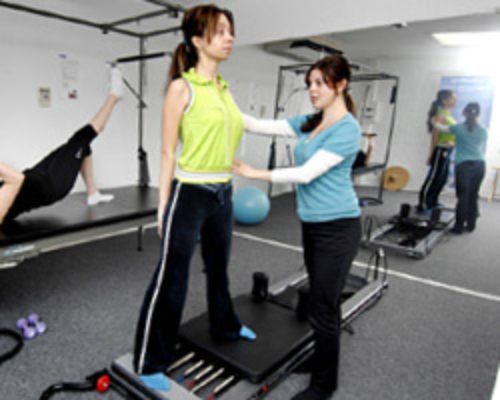To read the article as it appears in the Great Health Guide click here: https://issuu.com/great_health...
Alternatively read the text below:

Can Clinical Pilates Help You Lose Weight?
Margarita Gurevich
Losing weight and being healthy are on the top of the priority list for many people. That’s understandable as attaining and maintaining the right weight is a vital aspect of our health and wellbeing.
Excessive weight can cause several health and wellness problems such as:
- heart disease
- diabetes
- stroke and others.
It can also exacerbate some musculoskeletal conditions such as:
- arthritis
- back and joint pain by placing extra load on the spine and joints.
Besides these more serious conditions, extra weight can have:
- a psychological impact on a person
- and people can become more self-conscious.
As physiotherapists we know that there are no ‘quick fixes’ when it comes to weight loss. However, the good news, is that it is possible to achieve your goal weight and then maintain it, but this will take a bit of work on your part. So, what is required? A good weight management program has two parts - adequate physical activity and healthy eating.
It is possible to achieve your goal weight & then maintain it.
1. Adequate physical activity
We will firstly focus on the physical activity aspect as this is more closely related to a physiotherapist’s work. In order to achieve your desired weight, it's important for your physical activity to involve exercises for cardio while also improving general muscle strength and tone. Clinical Pilates is highly effective at improving general muscle strength and tone as well as the strength and control of the core muscles and posture. Having a strong core means that the risk of sports injuries significantly reduces, and this will enable you to do more cardio. This, in turn, will further help with attaining your optimal weight.
- Most important: A thorough assessment of your body
It is very important that you undergo a thorough assessment prior to commencing Clinical Pilates, particularly if you are doing it in order to manage your weight. During the assessment your physiotherapist will check your weight, take your girth measurements and perform a thorough musculoskeletal assessment. This involves examining your posture, assessing the range of motion of the spine and joints and checking your ligaments. The assessment can also include spirometry for those patients whose respiratory system is compromised.
- Assessment determines your Clinical Pilates program
Your Clinical Pilates program will subsequently be based on the outcomes of the assessment which will ensure that the exercises will be specific to you and that you can do them safely. For people who are overweight, for instance, it’s very important to make sure that the exercises don’t put too much pressure on the spine and joints. A full body assessment includes a thorough examination of the spine and joints and will help to provide a program to reduce the risk of overstraining. The information obtained during the full body assessment will also be used to track your progress during regular reassessments.
- Enjoy your exercise
When it comes to cardio training the main thing is to find the type of exercise which you will enjoy and which you can see yourself continuing to do in the long run. Power walking, jogging, swimming and dancing are just some examples of good cardio exercises but there are many others, so pick something you will enjoy and stick to it.
2. Healthy eating
Now let’s examine the second part – healthy eating. I want to stress that it’s just that – healthy eating, rather than an overly strict and restrictive diet. It is well known that while certain diets can help you lose weight in the short term they are usually not sustainable (and some can even be detrimental to our health) in the long run and once a person comes off that diet they often end up putting weight back on quickly.
- Make it your lifestyle
It’s important for this ‘healthy eating’ to become more of a lifestyle modification. For that, it can often help to see a specialist. While as physiotherapists we can give dietary advice when required, we will work closely together with your GP/dietician in order to make sure that the program is right for you.
In conclusion we want to say once again that attaining and maintaining your desired weight is certainly an achievable goal. Clinical Pilates can be an important part of the process, along with cardio exercises and healthy eating.

